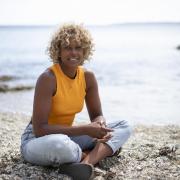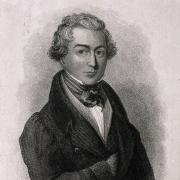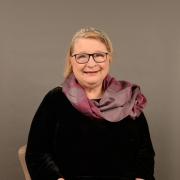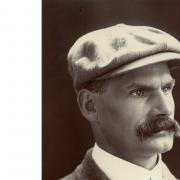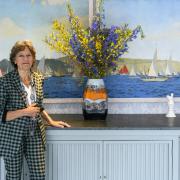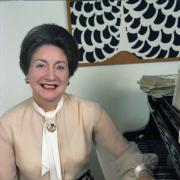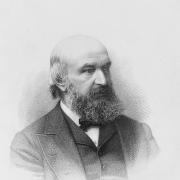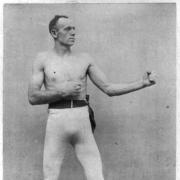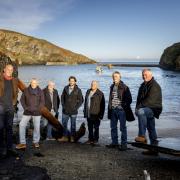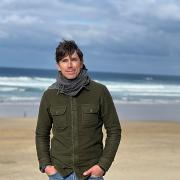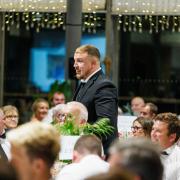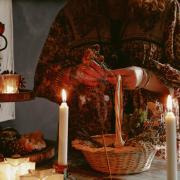A wodhes’ta kewsel Kernewek? Do you speak Cornish? If so, you’re one of the precious few contributing to the exciting revival of the ancient language. It’s hard to know exactly how many fluent speakers there are. Cornwall Council estimate the figure to be 300-400, with 1,000-2,000 people possessing very basic conversation skills.
‘The number of people learning and using the language is growing,’ confirms Mark Trevethan, Cornish Language Lead at Cornwall Council, who teaches Cornish classes in Truro. ‘90 people took Cornish language exams in 2019 and it is taught in 20 schools. The aim is to make sure that Cornish is not just protected but grows, so that it is in a stronger position for the next generation.’
One day the language may be more widely used in Cornwall as Welsh (one of the closest tongues to Cornish) is in Wales. It is thought that the root of Cornish originated in mainland Europe and was brought here by the Celts. By the 6th century, Common Brittonic (the ancient Celtic language spoken in Britain) was starting to split into different tongues, including Welsh, Breton (which is spoken widely in Brittany) and Cornish.

‘Cornish is similar to both Welsh and Breton, but closer to Breton,’ says Mark. ‘Many of the words are the same, so it’s possible to read lots of signs in those languages using Cornish, but basic sentences are very different. You can’t speak Cornish and be immediately understood by a Breton or Welsh speaker – but they’ll understand some words and may get the gist of it.’
Before the Book of Common Prayer (written in English) was enforced in the mid-16th century, people spoke Cornish as far east as Bodmin. By the early 17th century, Cornish was only spoken west of Truro and even there English was used as well. The language is usually said to have died in 1777 with Dolly Pentreath, who lived and worked in the fishing communities in and around Penzance. ‘Dolly was the last recorded monoglot speaker.’ says Mark. ‘Cornish is considered to have been a dead language in the 19th Century, but we know some families and trades carried on using it.’ There are records of Newlyn fisherman using Cornish at sea, for instance,
Renewed interest in the old tongue began when scholar Henry Jenner published A Handbook of the Cornish Language in 1904. Gradually the revival movement picked up speed and a century later, in 2010, UNESCO declared that Cornish was no longer extinct and the first Cornish crèche opened. In recent years, there has been an increase in Cornish used at public events, in schools and in newspapers and magazines; films have been made in Cornish and a few famous books - including Alice in Wonderland - have been translated into Cornish; language classes are held across Cornwall and exams can be taken.

‘It took me two to three years to be able to chat freely in Cornish,’ recalls Mark. ‘I’d always wanted to learn Cornish but never got round to it. Then I had two jobs with Welsh colleagues who kept gently asking questions about the Cornish language, which I couldn’t answer, so I signed up to a course. The language sounds beautiful to me, and I love hearing good speakers chatting away and having fun with it.’
For Cornish to become really established, so that fluent speakers such as Mark are commonplace across the Duchy, will take time, but the momentum seems to be leading that way.

‘Thankfully technology is creating new opportunities (for example there is an app that does predictive text in Cornish on mobile phones) and the language is becoming more visible,’ says Mark. ‘Cornwall Council, along with many businesses, organisations and artists, are using Cornish more and more but for that to happen, you need a thriving language community to provide translations, classes, recording voices and so on. The ambition is for the language to thrive and contribute to a dynamic community and cultural scene in Cornwall.’
Basic Cornish
Hello - Dydh da (pronunciation: Dyth da)
Good morning - Myttin da
Good evening - Gorthugher da (pronounce the ‘gh’ ch, as in loch)
How are you? - Fatla genes?
Great! - Splann!
OK - Da lowr
Tired - Skwith
Not great - Drog
What’s your name? - Pyth yw dha hanow? (pronunciation: Pyth ew tha hanow?)
I’m Rachel - Rachel ov vy (pronunciation: Rachel ov vee)
Where do you live? - Pleth os ta trigys?
I live in Truro - Trigys ov yn Truru
I live in St Ives - Trigys ov yn Porthia
What is the weather like? - Fatel yw an gewer? (pronunciation: Fatel ew an gower?)
Sunny - Howlyek yw (pronunciation: Hole-yek ew)
Hot - Tomm yw (pronunciation: Tomm ew)
Windy - Gwynsek yw (pronunciation: Gwynsek ew)
It’s raining - Hi a wra glaw (pronunciation: Hi a wra glow, to rhyme with cow)
Learn Cornish
Regular Cornish classes are held across Cornwall, for beginners and advanced speakers. Some ask for a fee, whilst others (such as those led by Cornwall Council in Truro) are free. Find out more here. During phases of COVID-19 lockdown, some classes are conducted online.





